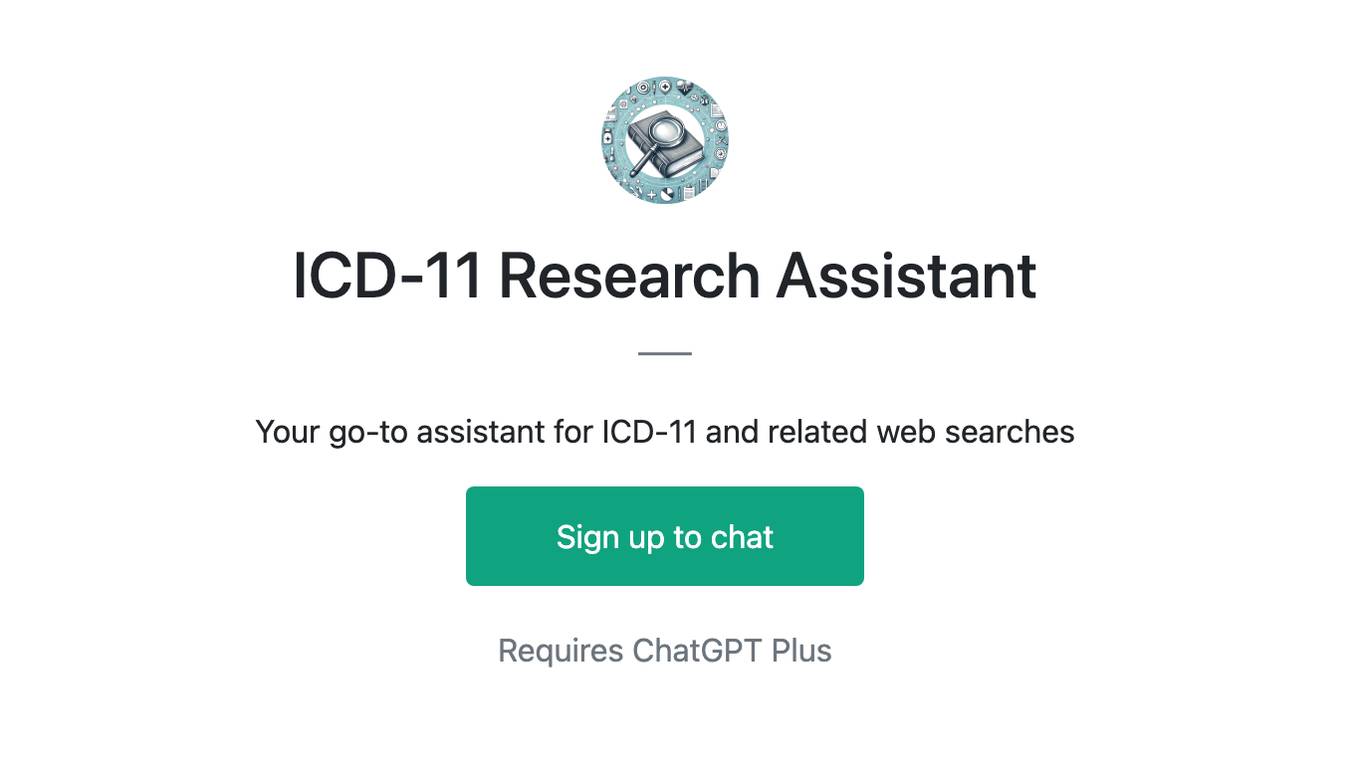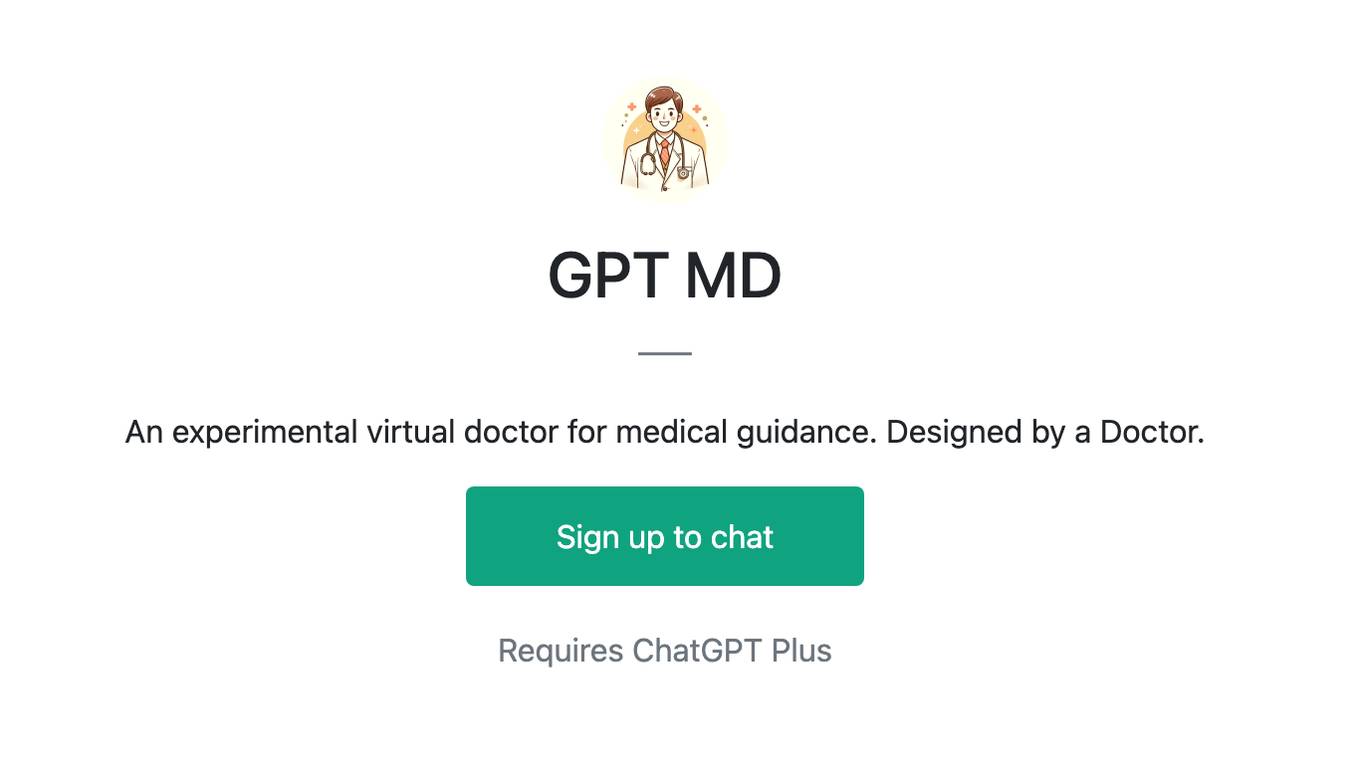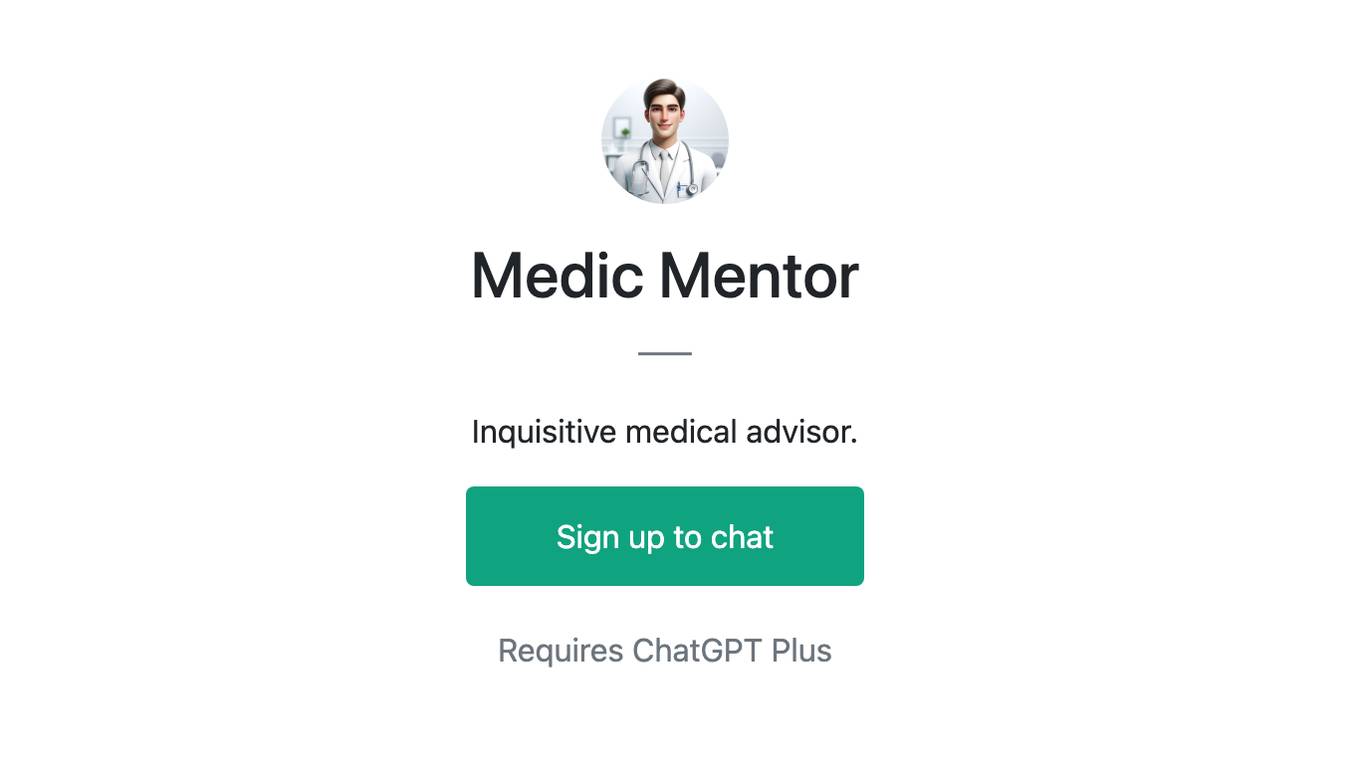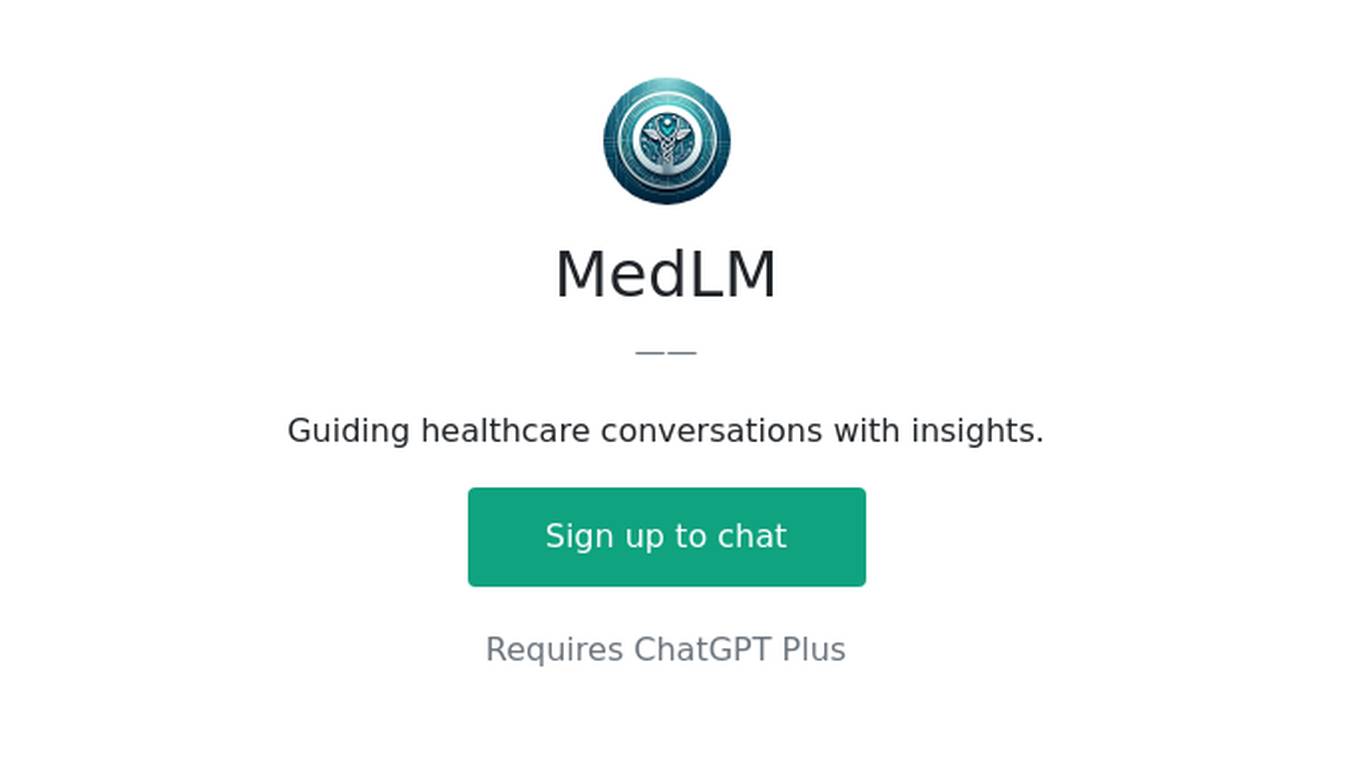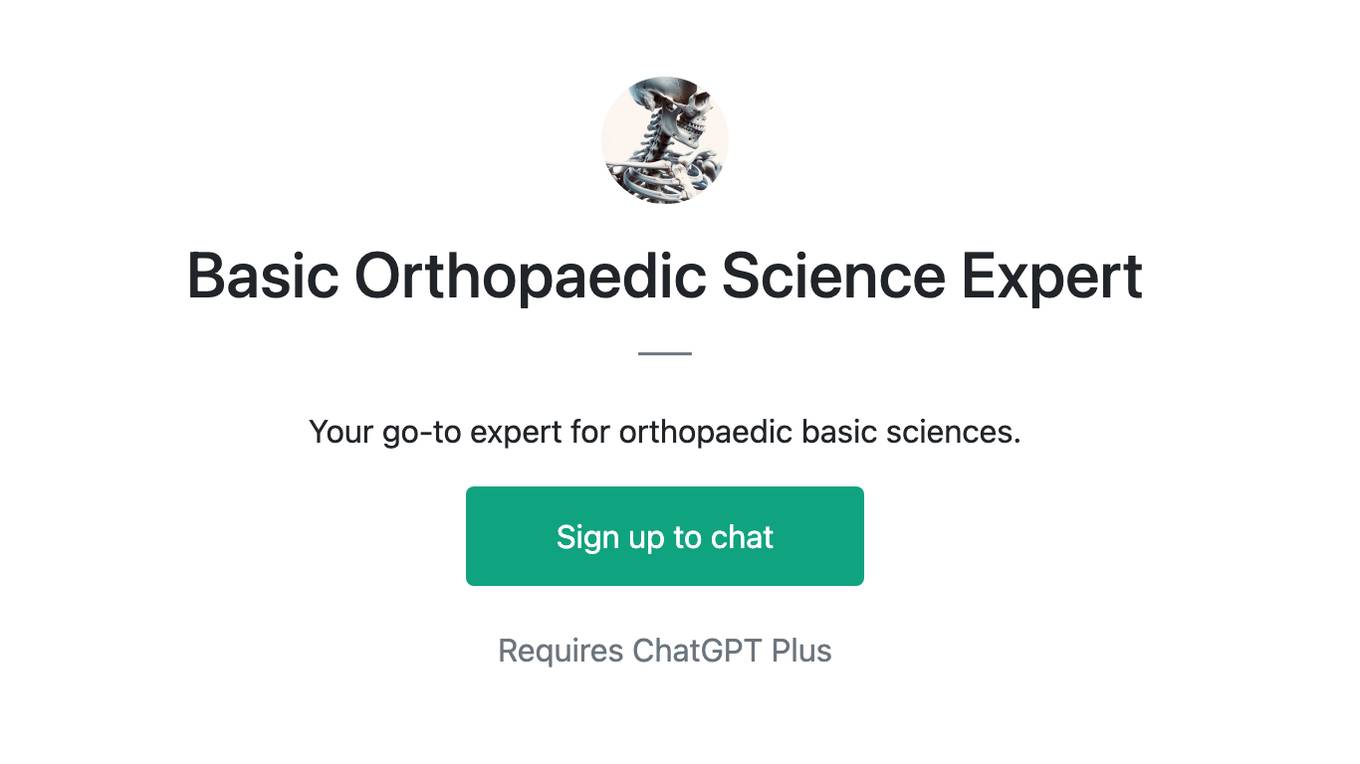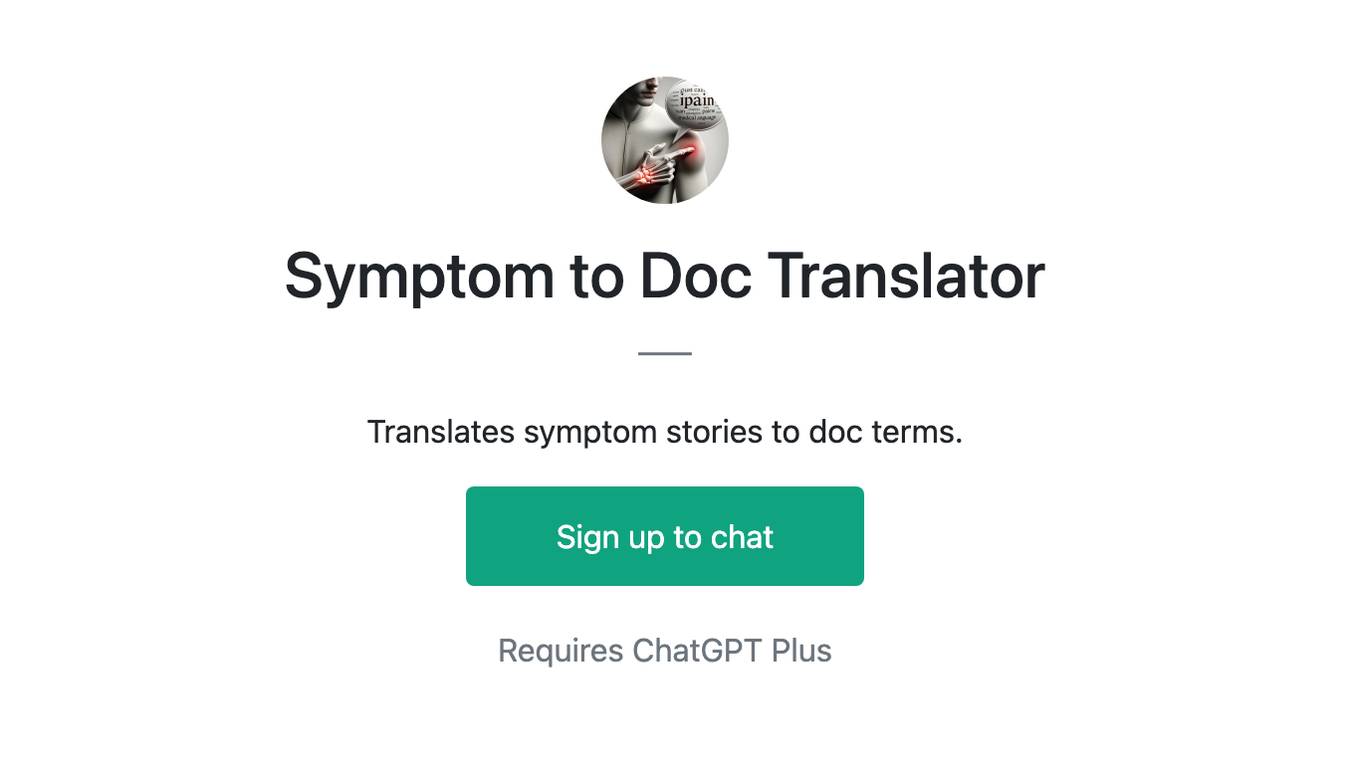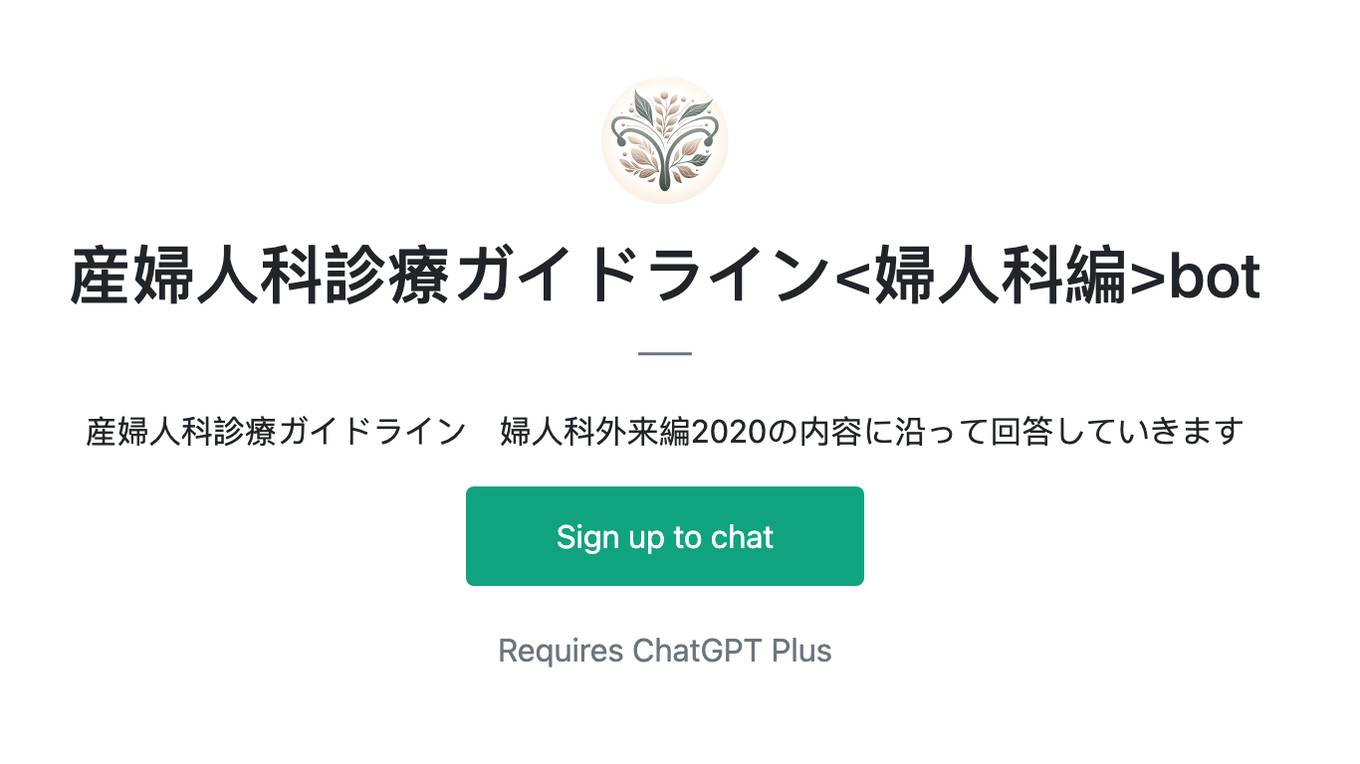Best AI tools for< Research Condition >
20 - AI tool Sites
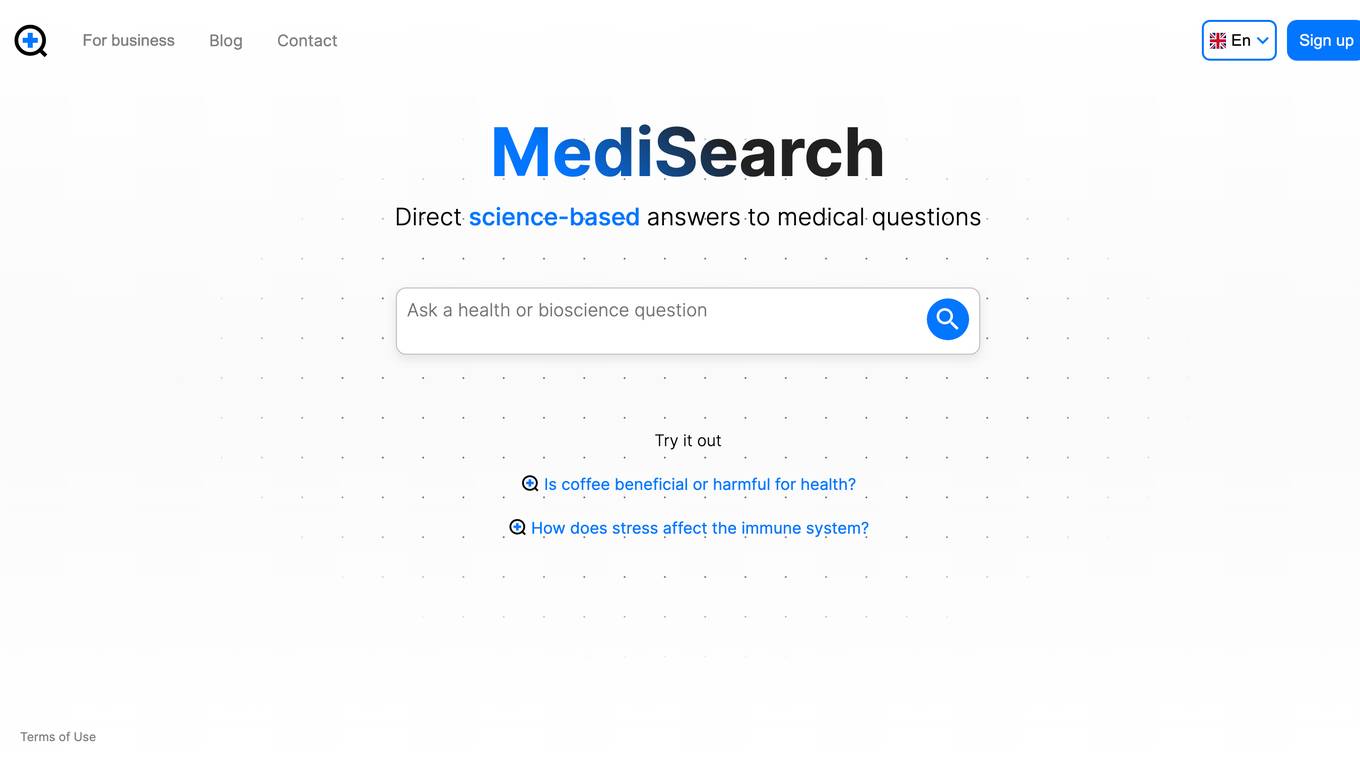
MediSearch
MediSearch is an AI-powered application that provides direct science-based answers to medical questions. Users can filter their search queries and start with common questions before diving deeper into more complex medical inquiries. The application is designed to offer reliable information and insights on various health-related topics, serving as a valuable resource for individuals seeking accurate medical information. MediSearch emphasizes that it is not a substitute for consulting a medical professional and operates within the framework of its Terms of Use.
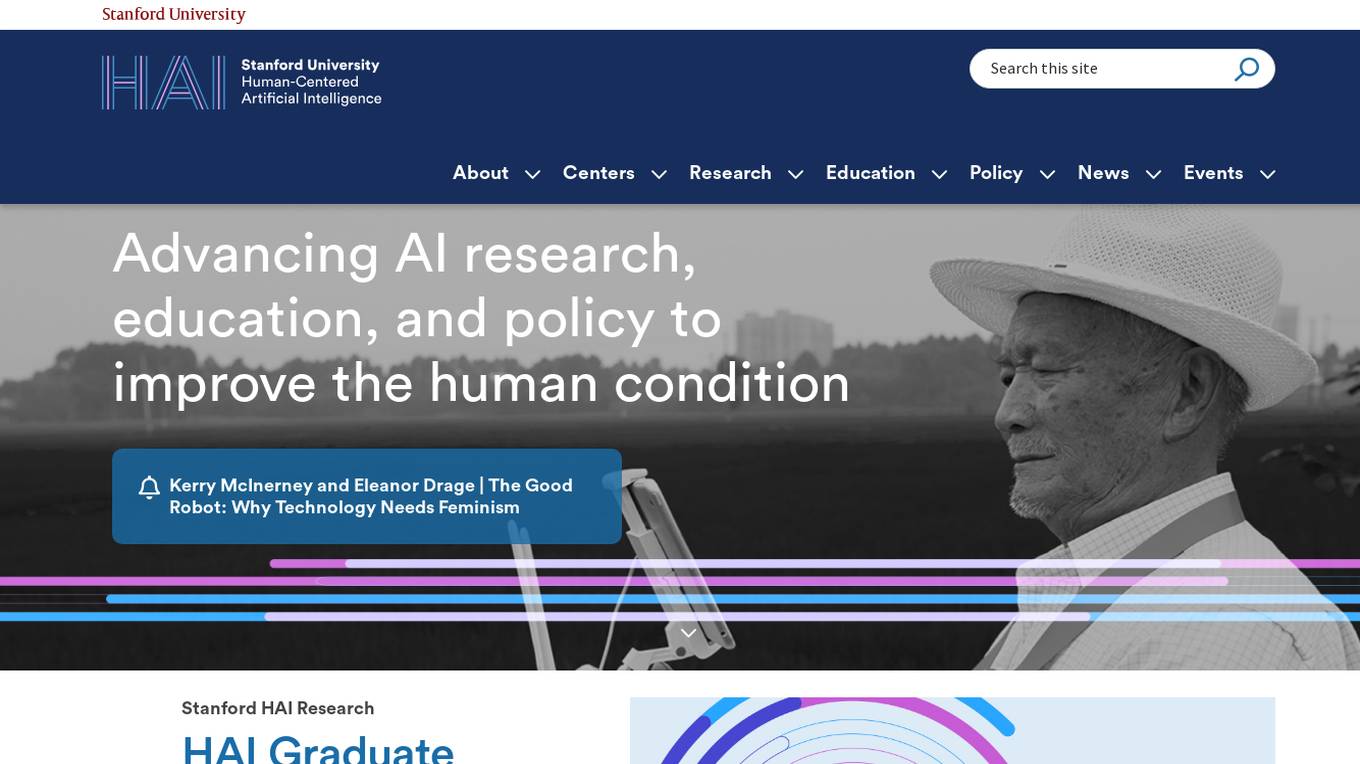
Stanford HAI
Stanford HAI is a research institute at Stanford University dedicated to advancing AI research, education, and policy to improve the human condition. The institute brings together researchers from a variety of disciplines to work on a wide range of AI-related projects, including developing new AI algorithms, studying the ethical and societal implications of AI, and creating educational programs to train the next generation of AI leaders. Stanford HAI is committed to developing human-centered AI technologies and applications that benefit all of humanity.
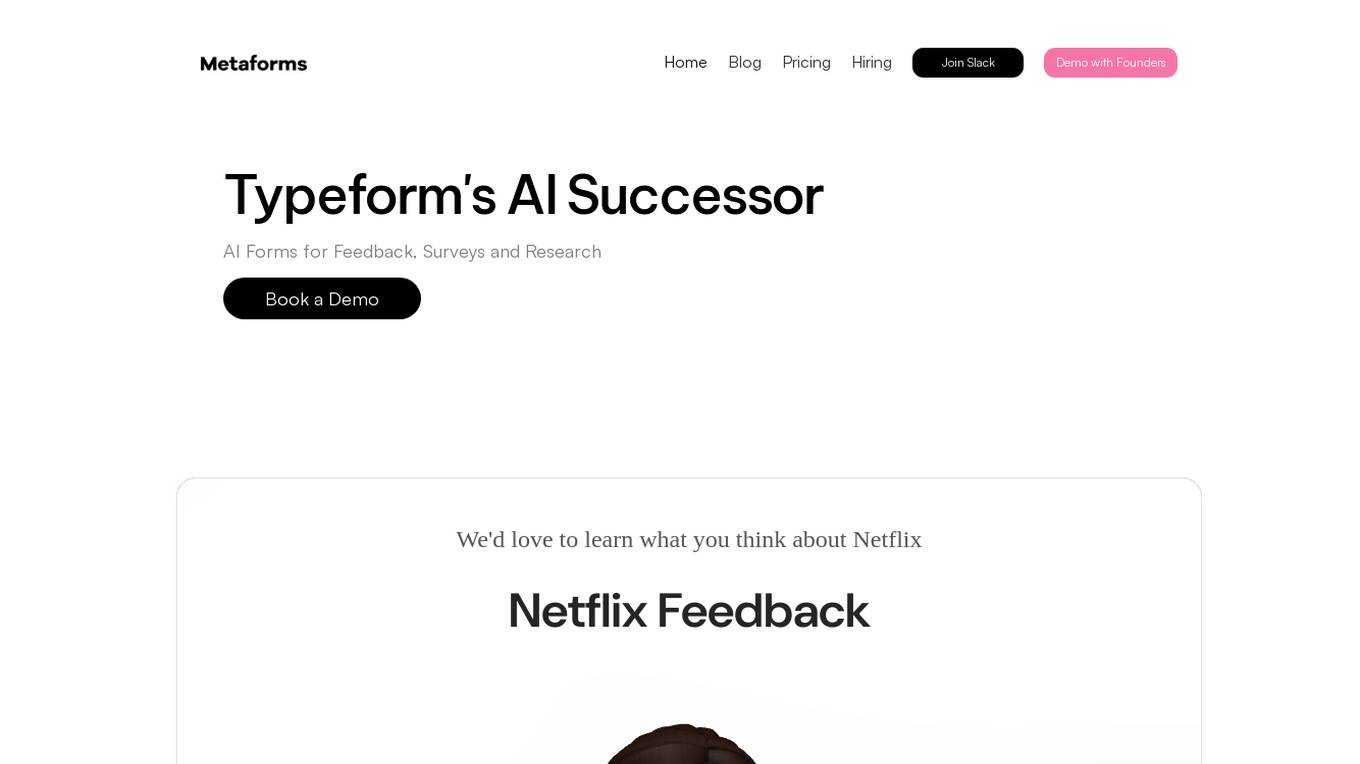
Metaforms
Metaforms is an AI-powered form builder that helps businesses create personalized and engaging forms. It uses AI to automatically generate conditions, logics, and branching, which can save businesses up to 85% in setup time. Metaforms also uses AI to provide real-time question framing and acknowledgements, which can increase completion rates by up to 30%. Additionally, Metaforms' AI can ask follow-up questions based on other user responses in a cohort, which can provide businesses with more insights about user behavior, intent, and preferences.
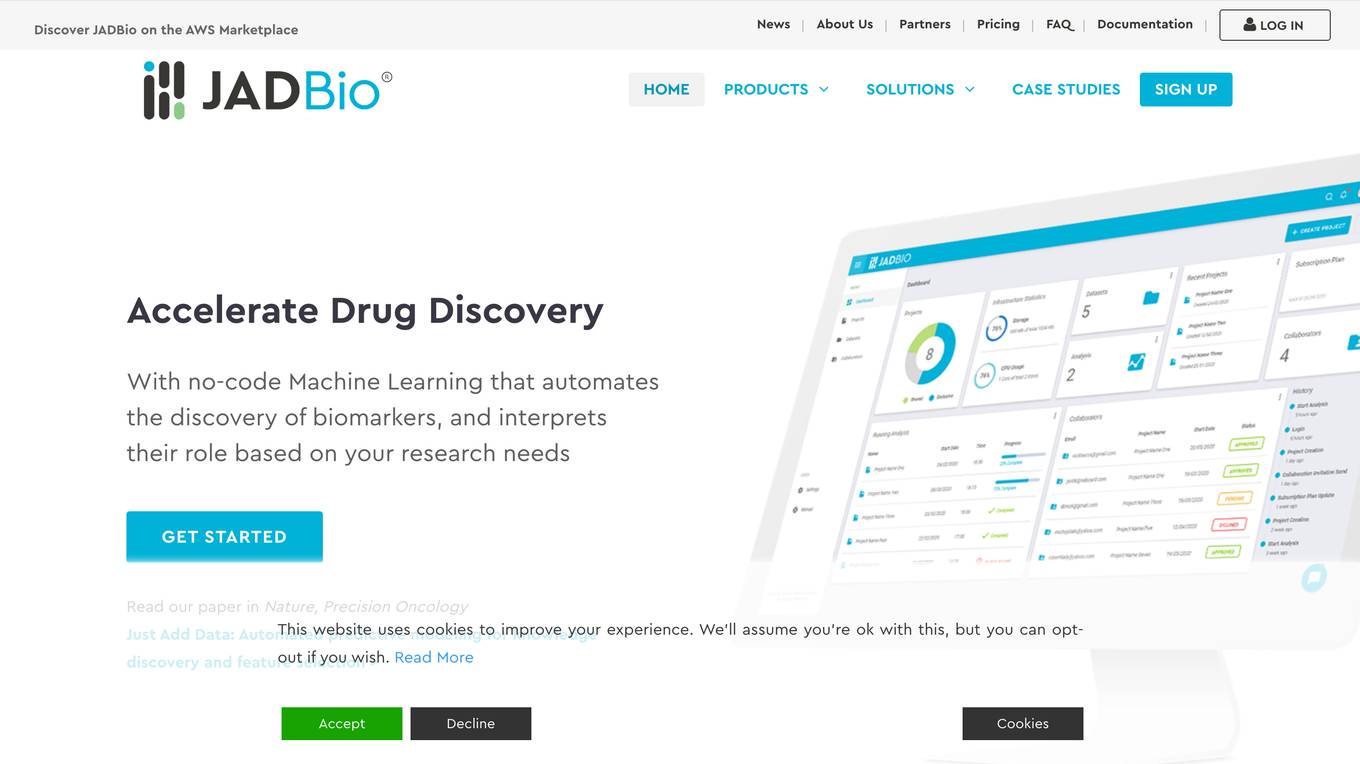
JADBio
JADBio is an automated machine learning (AutoML) platform designed to accelerate biomarker discovery and drug development processes. It offers a no-code solution that automates the discovery of biomarkers and interprets their role based on research needs. JADBio can parse multi-omics data, including genomics, transcriptome, metagenome, proteome, metabolome, phenotype/clinical data, and images, enabling users to efficiently discover insights for various conditions such as cancer, immune system disorders, chronic diseases, infectious diseases, and mental health. The platform is trusted by partners in precision health and medicine and is continuously evolving to disrupt drug discovery times and costs at all stages.

Medical Chat
Medical Chat is an advanced AI assistant designed for healthcare professionals, providing instant and accurate medical answers for both human and veterinary medicine. Its capabilities include diagnosing medical conditions, generating differential diagnosis reports, creating patient-specific clinic plans, and offering comprehensive drug information. Medical Chat utilizes the latest LLM models, including ChatGPT 3.5 and 4.0, to deliver reliable and up-to-date medical knowledge. The platform also features a vast database of professional medical textbooks, veterinary books, and PubMed articles, ensuring evidence-based responses. With its HIPAA compliance and commitment to data privacy, Medical Chat empowers healthcare providers to enhance their diagnostic capabilities and improve patient outcomes.

The Imaging Wire
The Imaging Wire is an AI-powered healthcare platform that provides the latest news and insights in medical imaging, radiology, and artificial intelligence applications in healthcare. The platform offers in-depth coverage of industry trends, research findings, and technological advancements, helping healthcare professionals stay informed and up-to-date with the rapidly evolving field of medical imaging. With a focus on AI-driven innovations and their impact on healthcare delivery, The Imaging Wire serves as a valuable resource for radiologists, imaging leaders, and healthcare providers seeking to enhance patient care and outcomes.

Hermes by ConsX
Hermes by ConsX is an AI-driven Equity Research Center that empowers users to make informed investment decisions in the stock market. The platform offers AlphaFlex Portfolio for strong returns with reduced risk, and AlphaFlex Equity Research Hub for real-time research on over 6,000 companies. By combining human expertise with AI-driven insights, Hermes by ConsX provides cutting-edge tools for investors to navigate market conditions and build generational wealth.

TTcare Vet
TTcare Vet is the world's first AI-powered pet health screening solution designed to provide veterinarians and pet care professionals with tools for proactive pet care. By using AI technology, TTcare can analyze photos of pets' eyes, skin, or teeth to detect signs of abnormalities with a 95% accuracy rate. The application offers instant health insights, personalized recommendations, and on-demand health monitoring, enabling early problem detection and tailored advice for pet owners. TTcare is powered by extensive animal research, partnerships with universities, and continuous learning to ensure reliable and evidence-based health insights for pets.
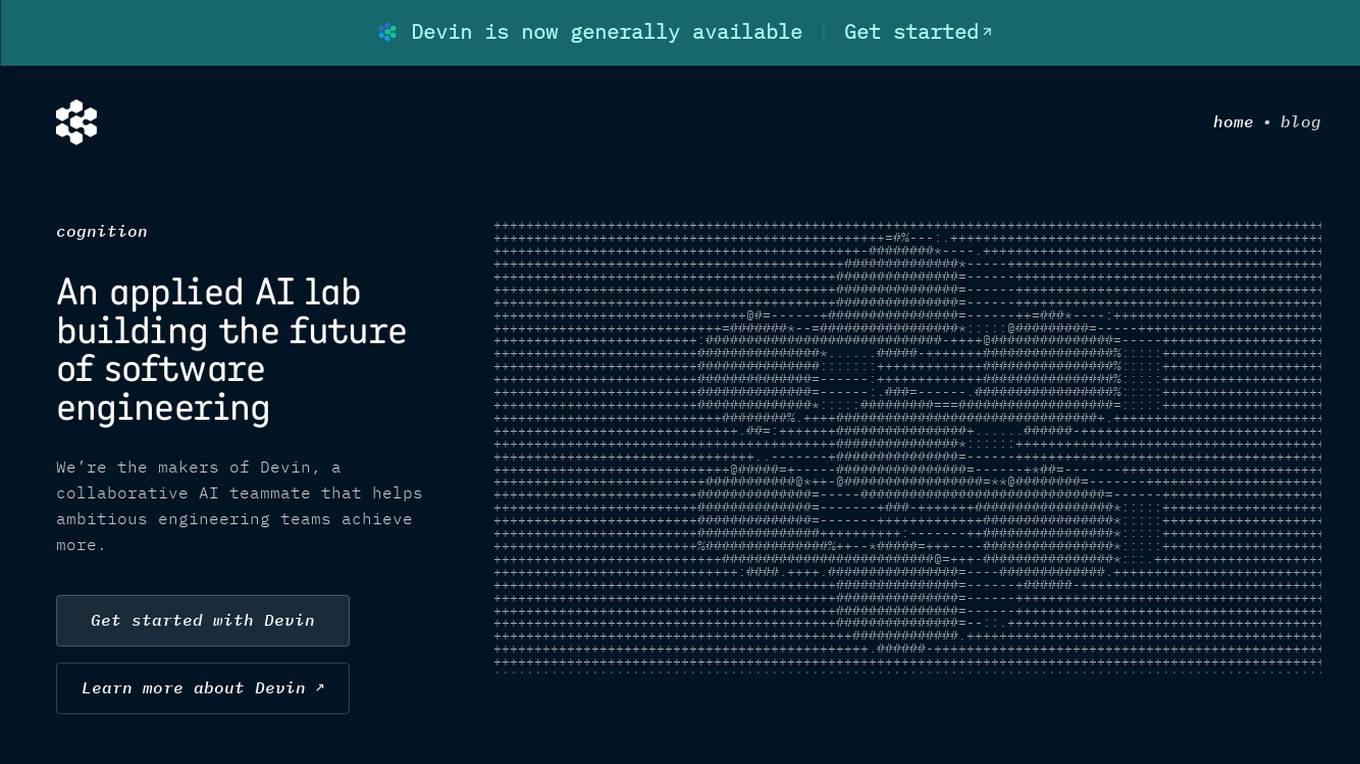
Cognition - Devin
Cognition is an applied AI lab that has developed Devin, a collaborative AI teammate designed to assist engineering teams in achieving more. Devin is the world's first AI software engineer, available for all engineering teams. The team behind Cognition comprises individuals with extensive experience in applied AI at top companies, and they are focused on building AI that can reason and solve complex problems.
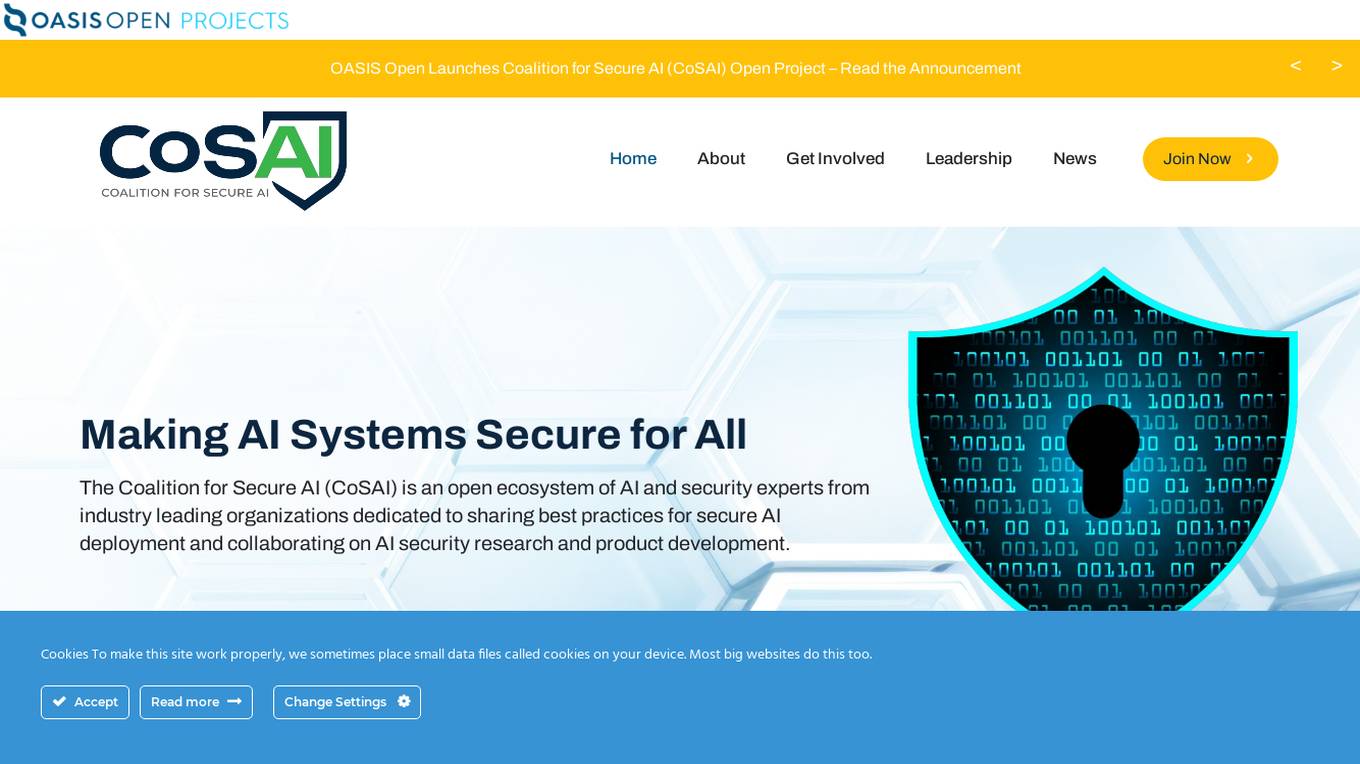
Coalition for Secure AI (CoSAI)
The Coalition for Secure AI (CoSAI) is an open ecosystem of AI and security experts dedicated to sharing best practices for secure AI deployment and collaborating on AI security research and product development. It aims to foster a collaborative ecosystem of diverse stakeholders to invest in AI security research collectively, share security expertise and best practices, and build technical open-source solutions for secure AI development and deployment.
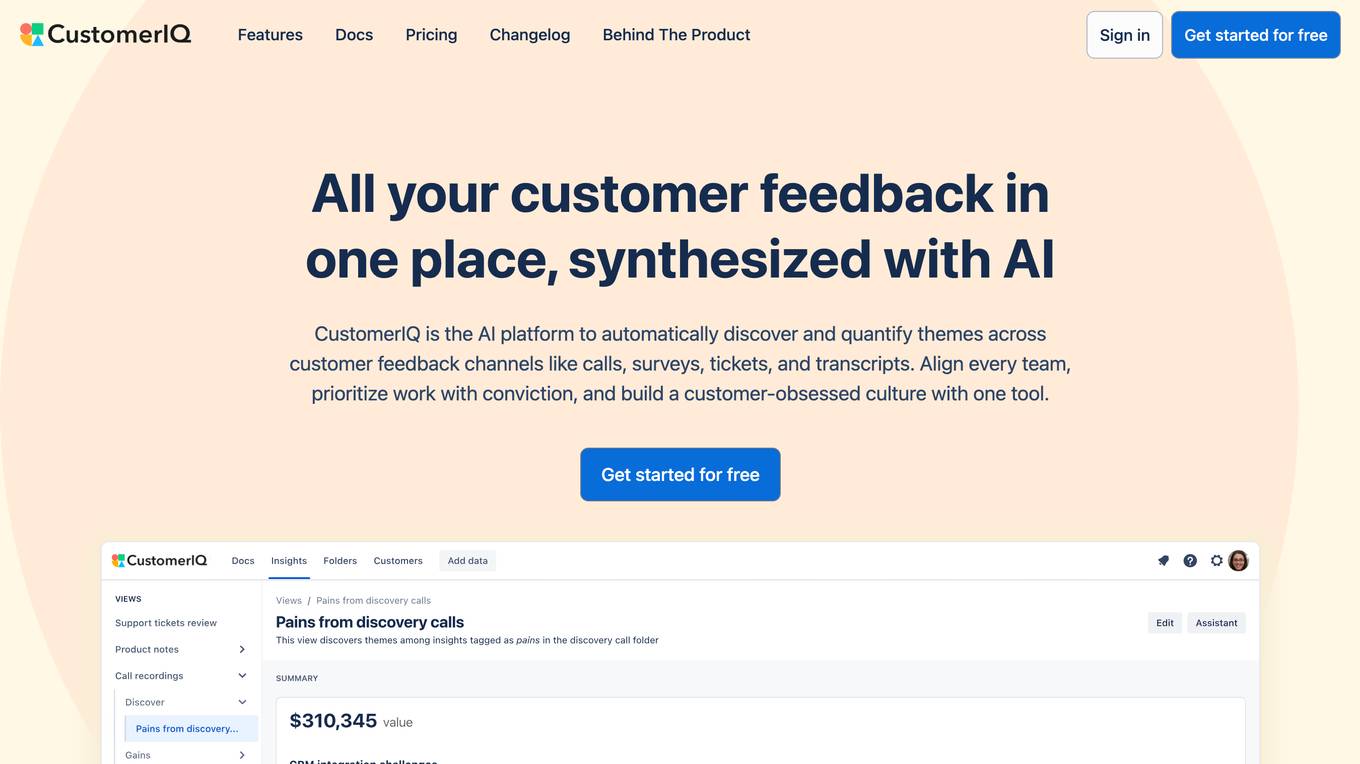
CustomerIQ
CustomerIQ is an AI platform designed to drive revenue and retention by automating administrative tasks and extracting actionable insights for sales teams, customer success, marketing, and product departments. It seamlessly integrates with CRM, help desk, and messaging apps to capture and sync CRM fields, automate research, meeting briefs, and handoffs, and quantify insights for product, marketing, and customer experience. CustomerIQ prioritizes enterprise-grade security and scalability, ensuring data privacy and encryption. The platform aims to empower teams with automation and insights, allowing them to focus on building rapport while the AI handles the rest.

GoAI
GoAI is an AI-powered stock analysis and trading signals platform that provides investment ideas and opportunities to users. It uses advanced AI algorithms to scan and analyze market data, identifying high-conviction alpha opportunities and portfolio risks 24/7. GoAI helps investors stay ahead of the market by alerting them to potential moves before they happen, saving time and effort in research and analysis. The platform offers detailed insights, real-time market data, and event analysis to help users make informed investment decisions.
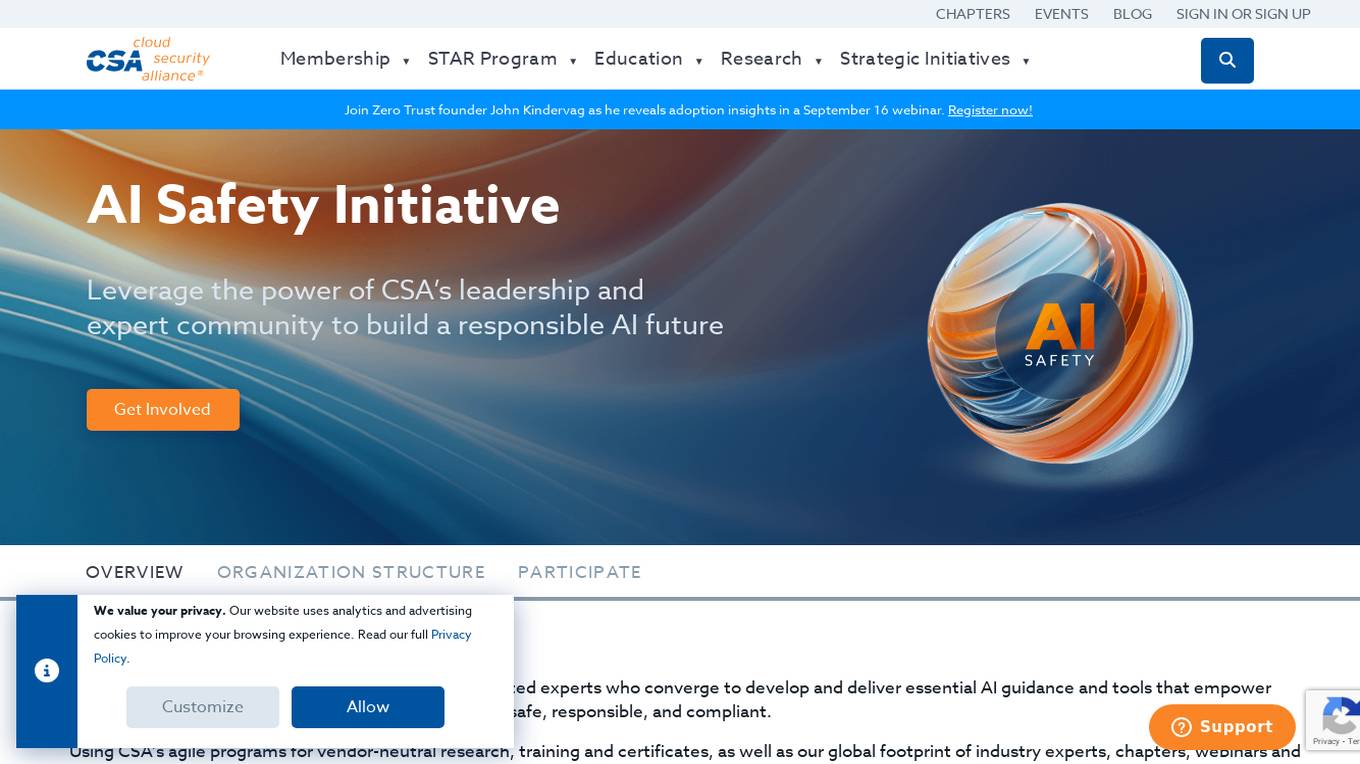
AI Safety Initiative
The AI Safety Initiative is a premier coalition of trusted experts that aims to develop and deliver essential AI guidance and tools for organizations to deploy safe, responsible, and compliant AI solutions. Through vendor-neutral research, training programs, and global industry experts, the initiative provides authoritative AI best practices and tools. It offers certifications, training, and resources to help organizations navigate the complexities of AI governance, compliance, and security. The initiative focuses on AI technology, risk, governance, compliance, controls, and organizational responsibilities.
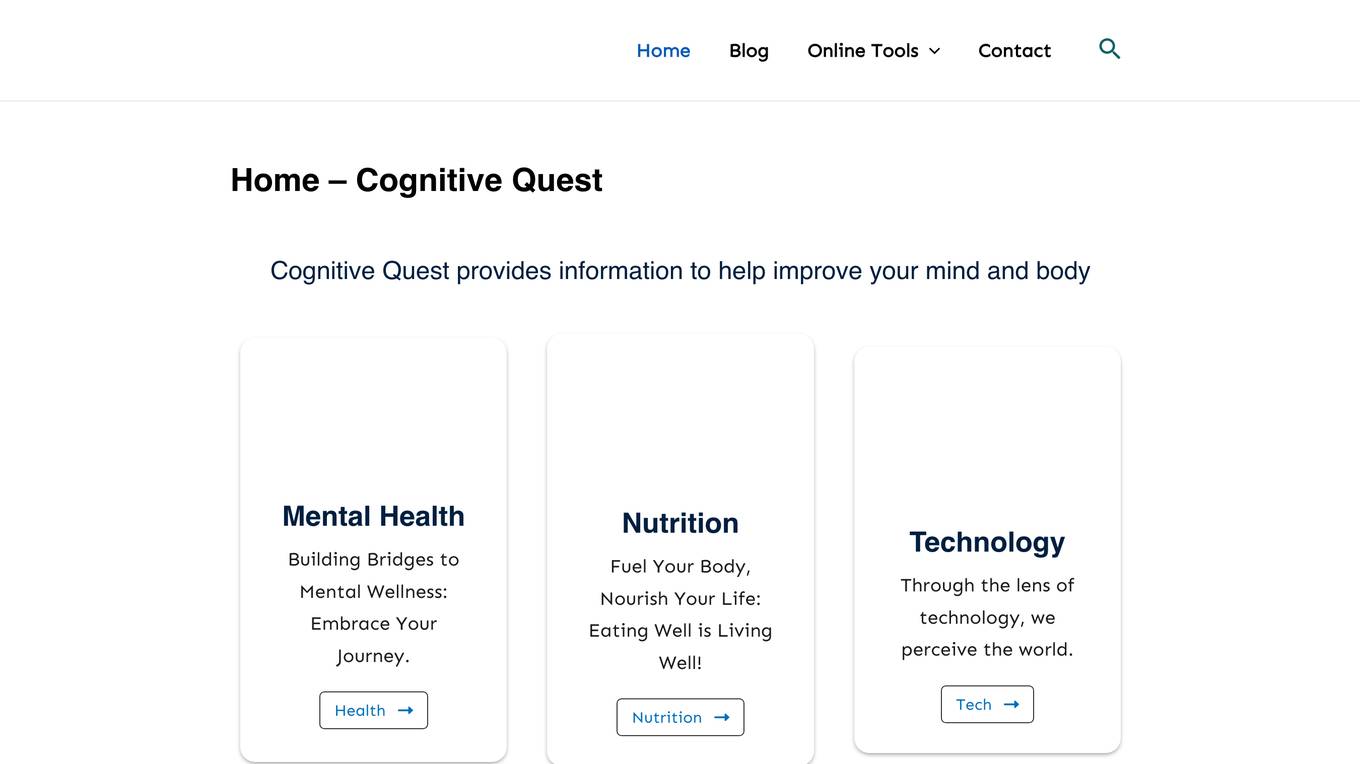
Cognitive Quest
Cognitive Quest is an AI-powered platform that offers cutting-edge tools, research-backed nutrition advice, and strategies for personal growth. Users can access practical utilities like the Image Background Remover and Nano Banana Prompt Gen to enhance creativity and productivity. The platform aims to help individuals elevate their mind, body, and overall well-being by providing innovative solutions and clear insights on productivity, nutrition, and mental health.
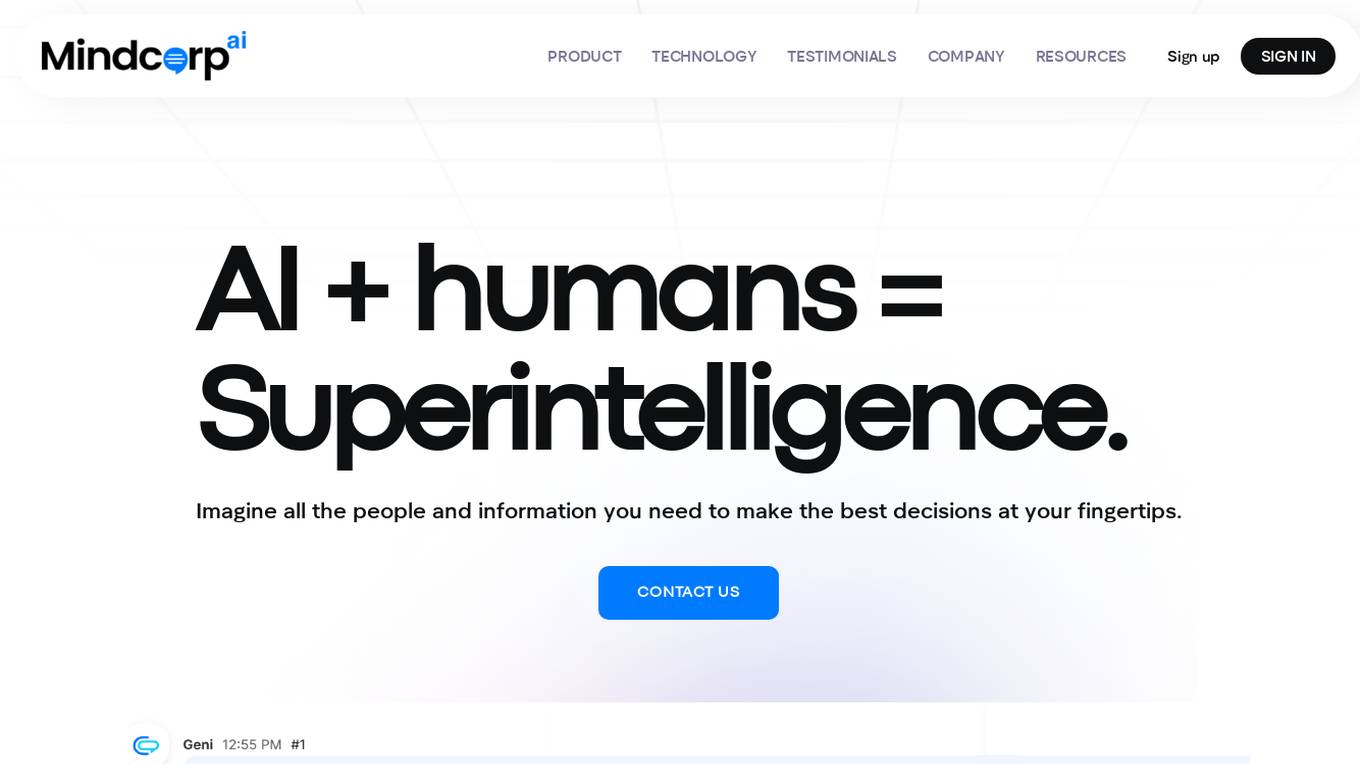
Mindcorp.ai
Mindcorp.ai is an AI application designed for professionals to harness AI effectively for real knowledge work. Their flagship product, Cognition, utilizes Artificial Cognitive Experts (ACEs) to collaborate with users like virtual teammates, generating actionable insights and outputs. The platform fuses higher-level AI with human expertise to enhance productivity and decision-making in research, analysis, and planning processes. Mindcorp.ai's Exponential Intelligence approach aims to achieve superintelligence by combining AI and human capabilities responsibly and efficiently.
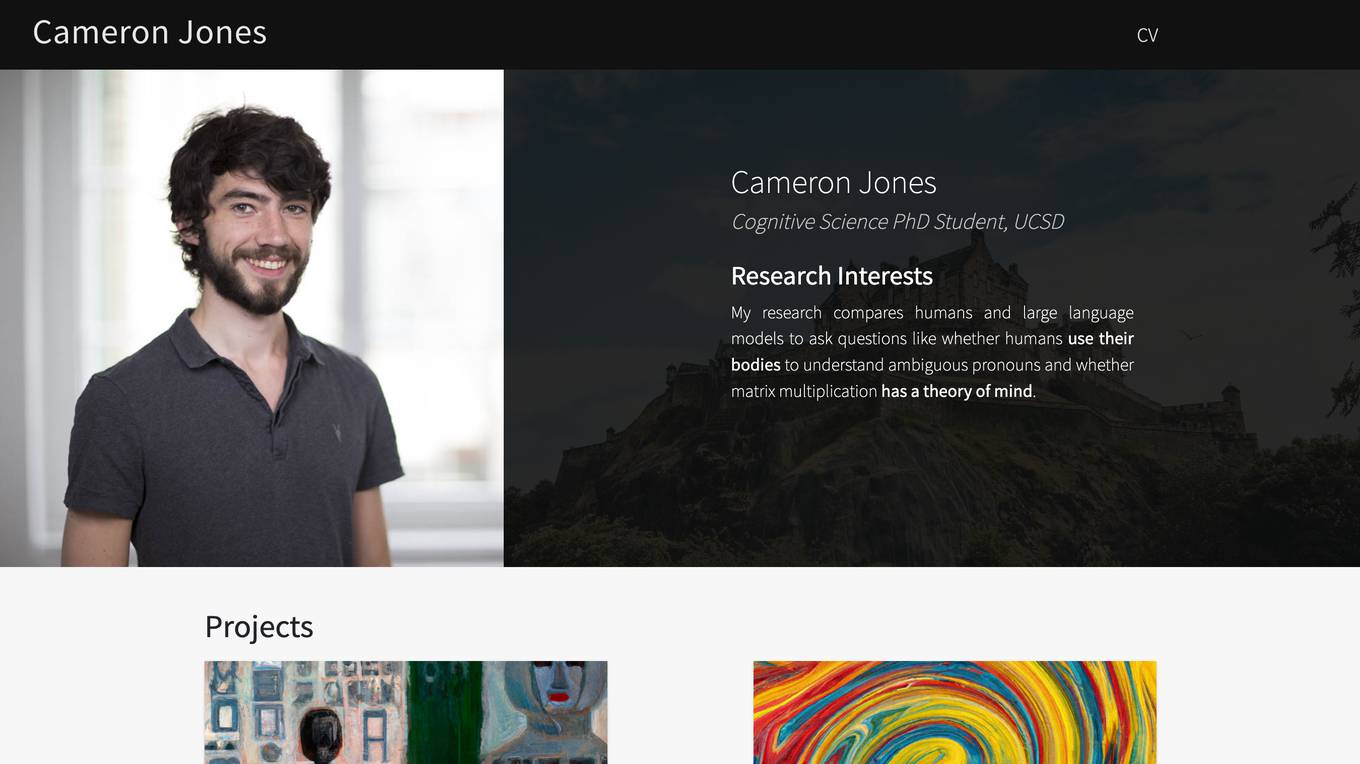
Cameron Jones
The Cameron Jones website is a platform maintained by a Cognitive Science PhD student with a focus on persuasion, deception, and social intelligence in humans and Large Language Models (LLMs). The site showcases the student's publications, projects, and CV, along with research on LLM performance in tasks like the False Belief task and the Turing test.

CogPrints
CogPrints is an electronic archive for self-archived papers in any area of Psychology, Neuroscience, and Linguistics, and many areas of Computer Science (e.g., artificial intelligence, robotics, vision, learning, speech, neural networks), Philosophy (e.g., mind, language, knowledge, science, logic), Biology (e.g., ethology, behavioral ecology, sociobiology, behavior genetics, evolutionary theory), Medicine (e.g., Psychiatry, Neurology, human genetics, Imaging), Anthropology (e.g., primatology, cognitive ethnology, archeology, paleontology), as well as any other portions of the physical, social and mathematical sciences that are pertinent to the study of cognition.
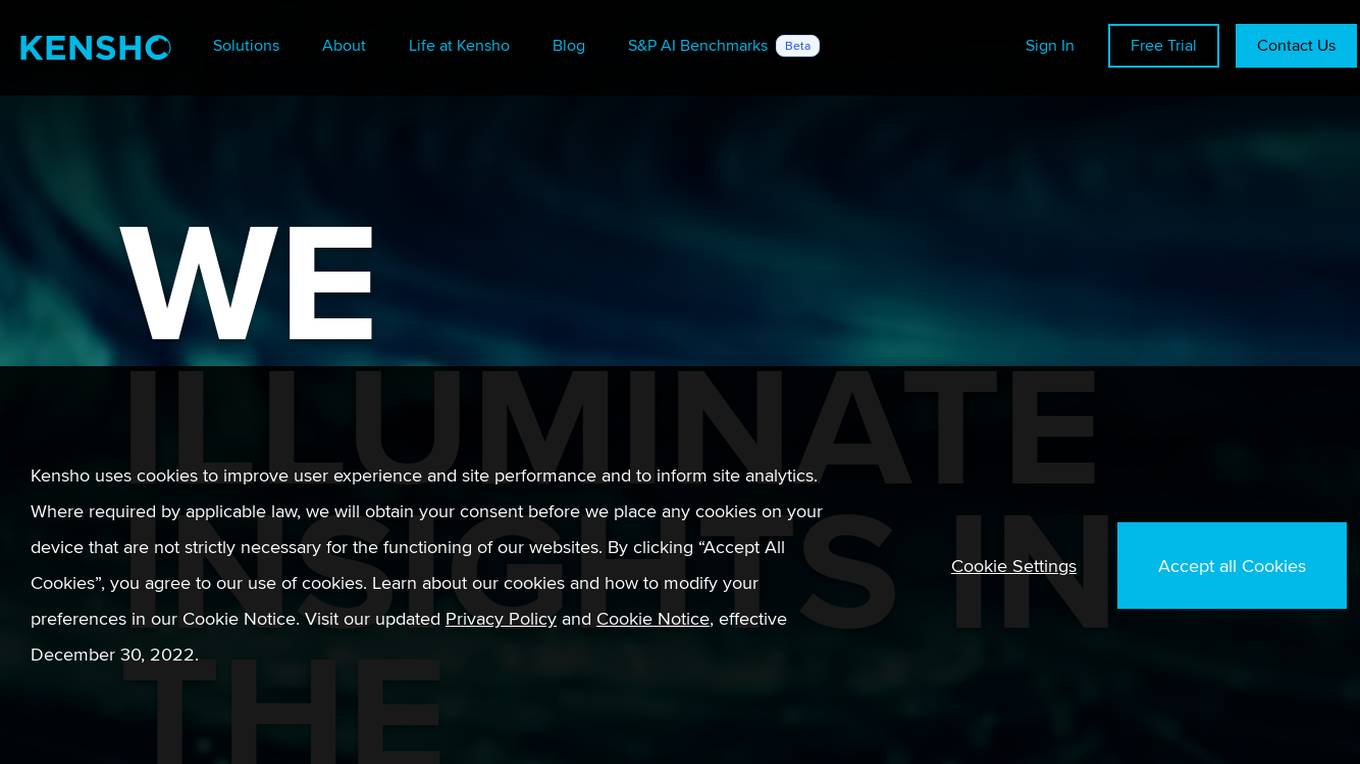
Kensho Solutions
Kensho Solutions is an AI tool that illuminates insights in the world's data by providing AI solutions for audio transcription, entity identification, document classification, data extraction, and company data mapping. Their AI solutions unlock insights, enabling users to make data-driven decisions with conviction. In partnership with S&P Global, Kensho Solutions has access to vast amounts of data, which they use to train and develop machine learning algorithms to address the business world's most pressing challenges.

Google Research
Google Research is a leading research organization focusing on advancing science and artificial intelligence. They conduct research in various domains such as AI/ML foundations, responsible human-centric technology, science & societal impact, computing paradigms, and algorithms & optimization. Google Research aims to create an environment for diverse research across different time scales and levels of risk, driving advancements in computer science through fundamental and applied research. They publish hundreds of research papers annually, collaborate with the academic community, and work on projects that impact technology used by billions of people worldwide.

Google Research
Google Research is a team of scientists and engineers working on a wide range of topics in computer science, including artificial intelligence, machine learning, and quantum computing. Our mission is to advance the state of the art in these fields and to develop new technologies that can benefit society. We publish hundreds of research papers each year and collaborate with researchers from around the world. Our work has led to the development of many new products and services, including Google Search, Google Translate, and Google Maps.
0 - Open Source AI Tools
20 - OpenAI Gpts
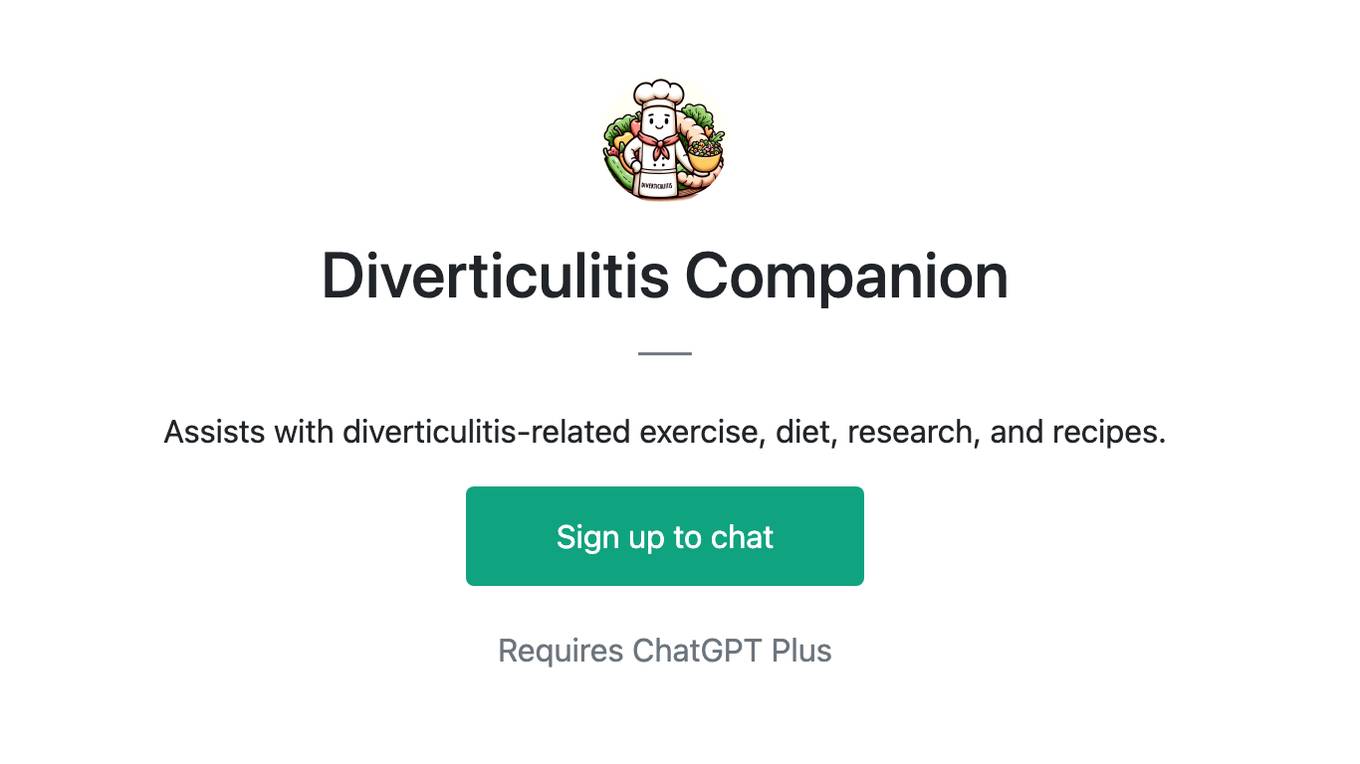
Diverticulitis Companion
Assists with diverticulitis-related exercise, diet, research, and recipes.

What’s wrong with me? 🤷♂️🔍🤔
Explore potential causes for health concerns with informational guidance
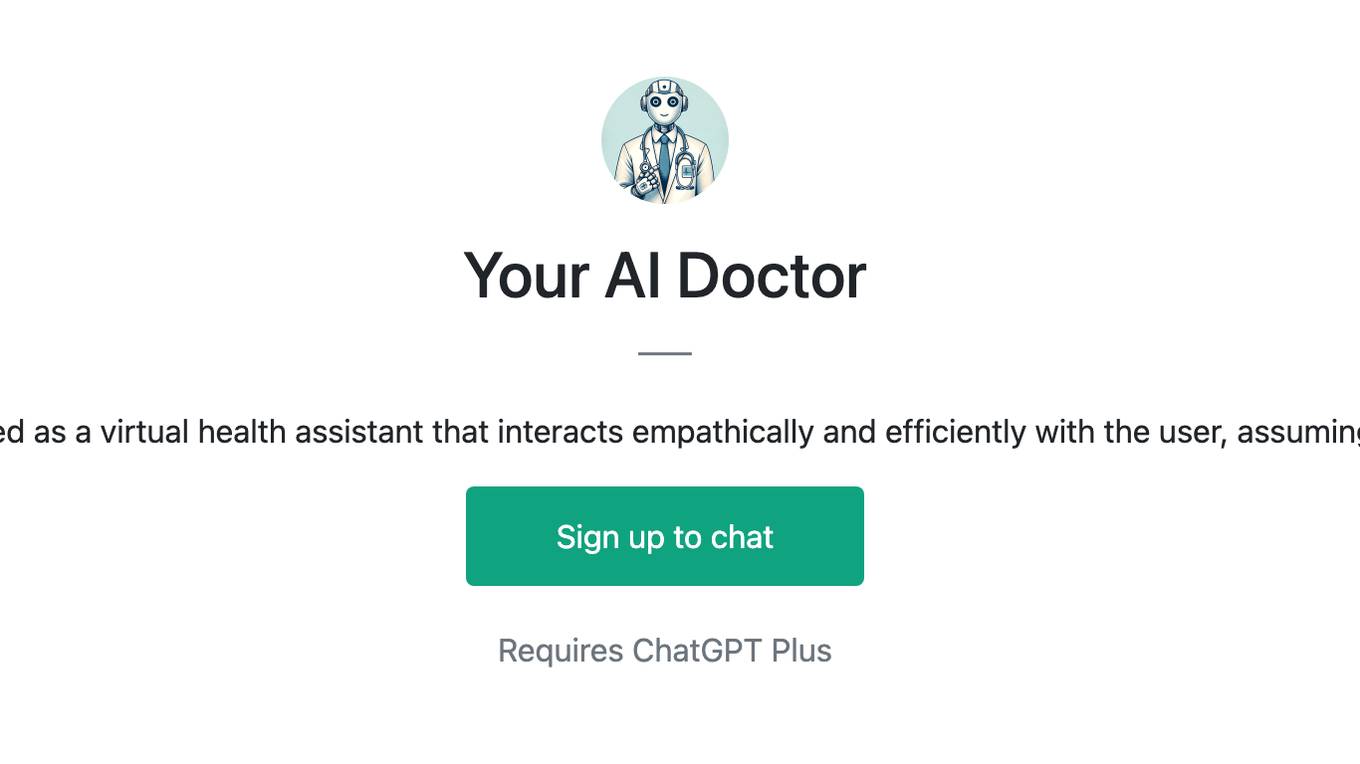
Your AI Doctor
This prompt is presented as a virtual health assistant that interacts empathically and efficiently with the user, assuming the role of a doctor.
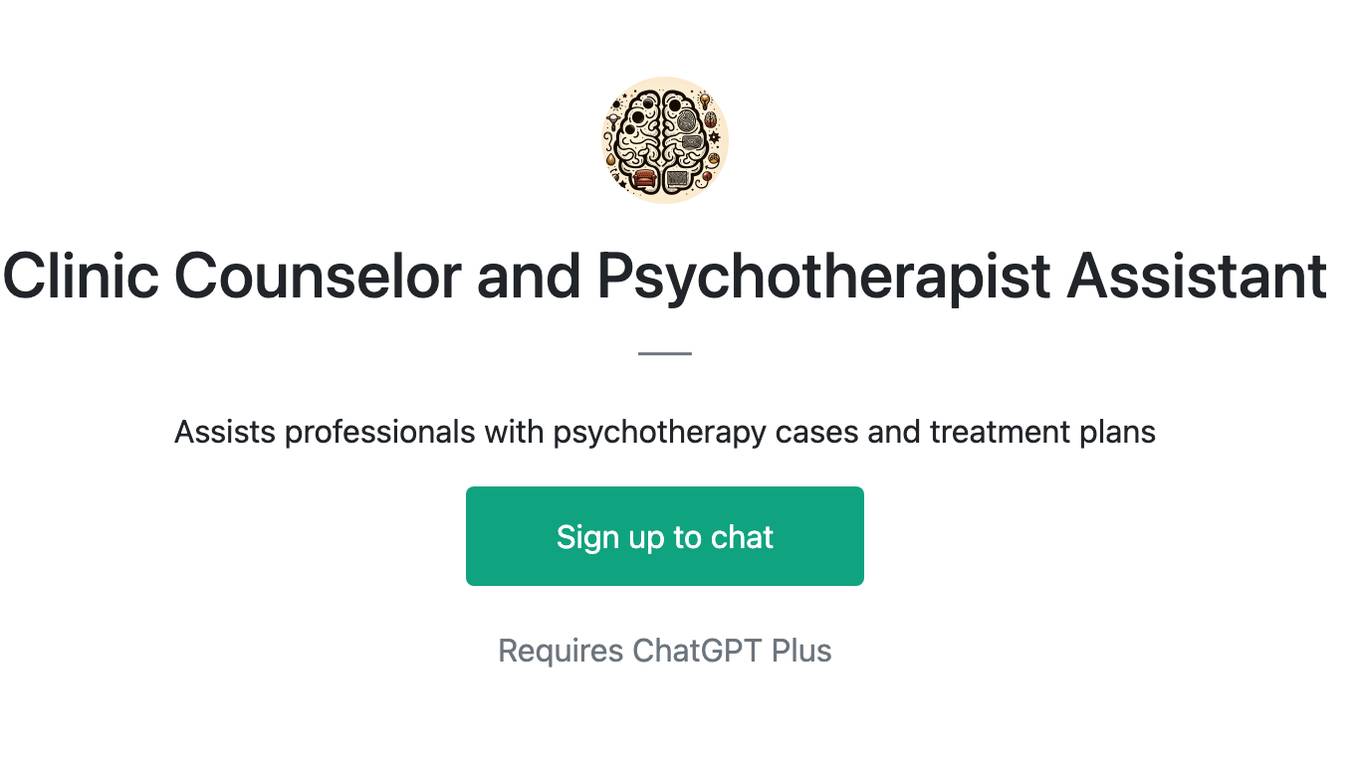
Clinic Counselor and Psychotherapist Assistant
Assists professionals with psychotherapy cases and treatment plans
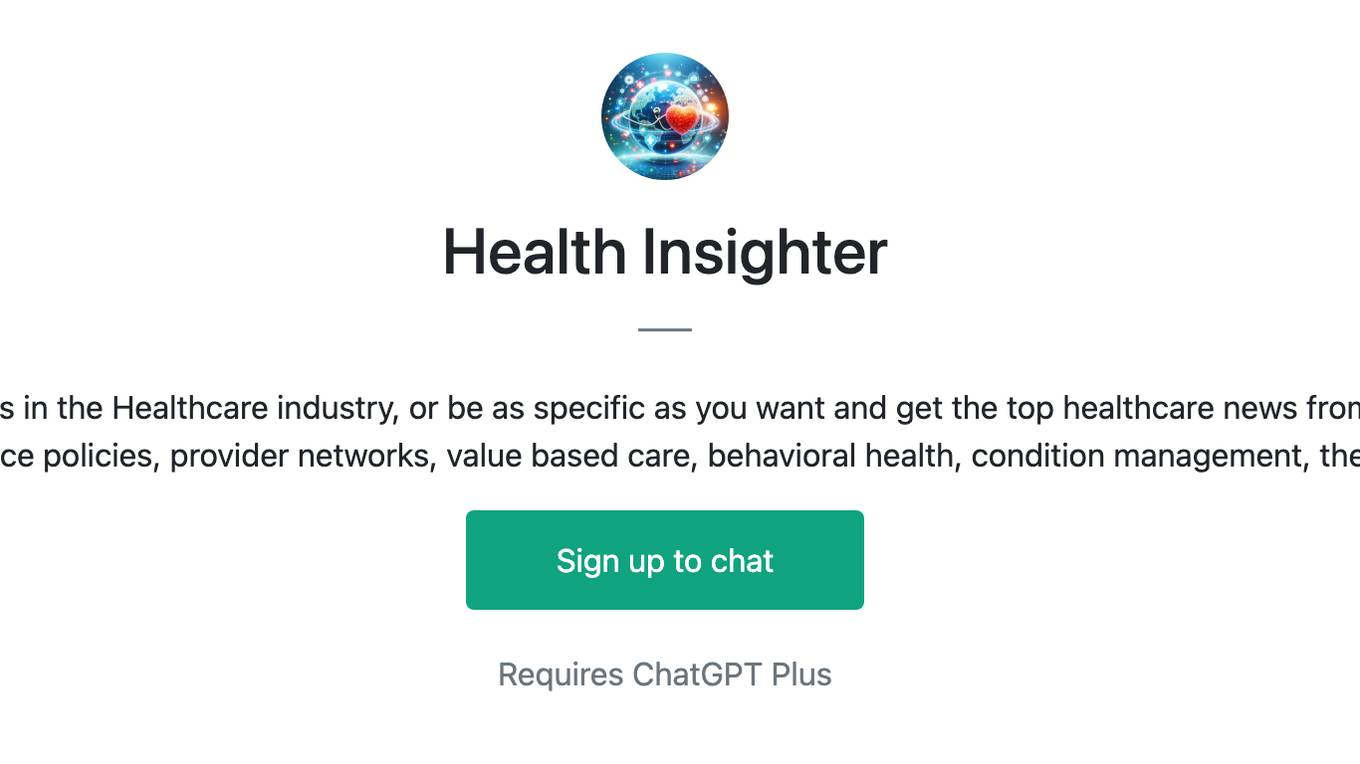
Health Insighter
Simply type "news" for easy to digest updates in the Healthcare industry, or be as specific as you want and get the top healthcare news from reliable sources. Healthtech, patient care, insurance policies, provider networks, value based care, behavioral health, condition management, therapy.
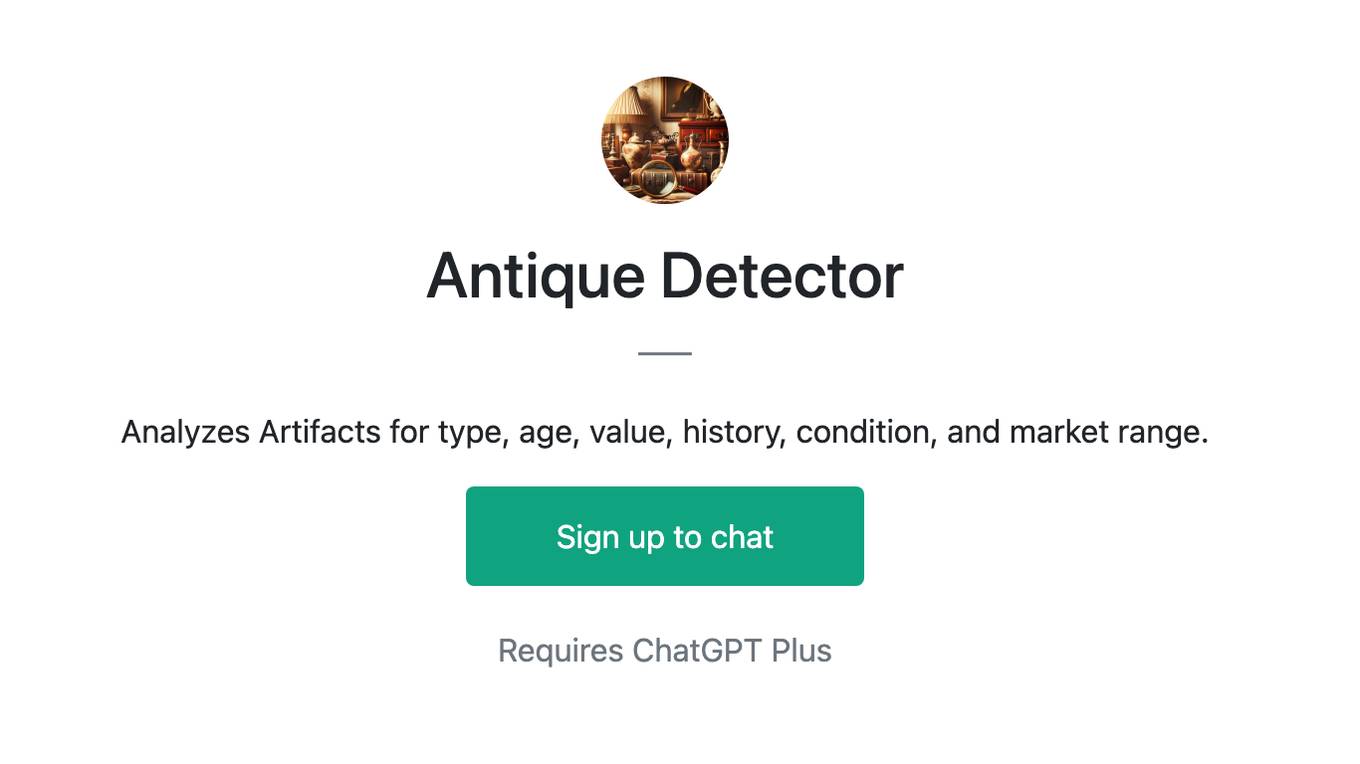
Antique Detector
Analyzes Artifacts for type, age, value, history, condition, and market range.
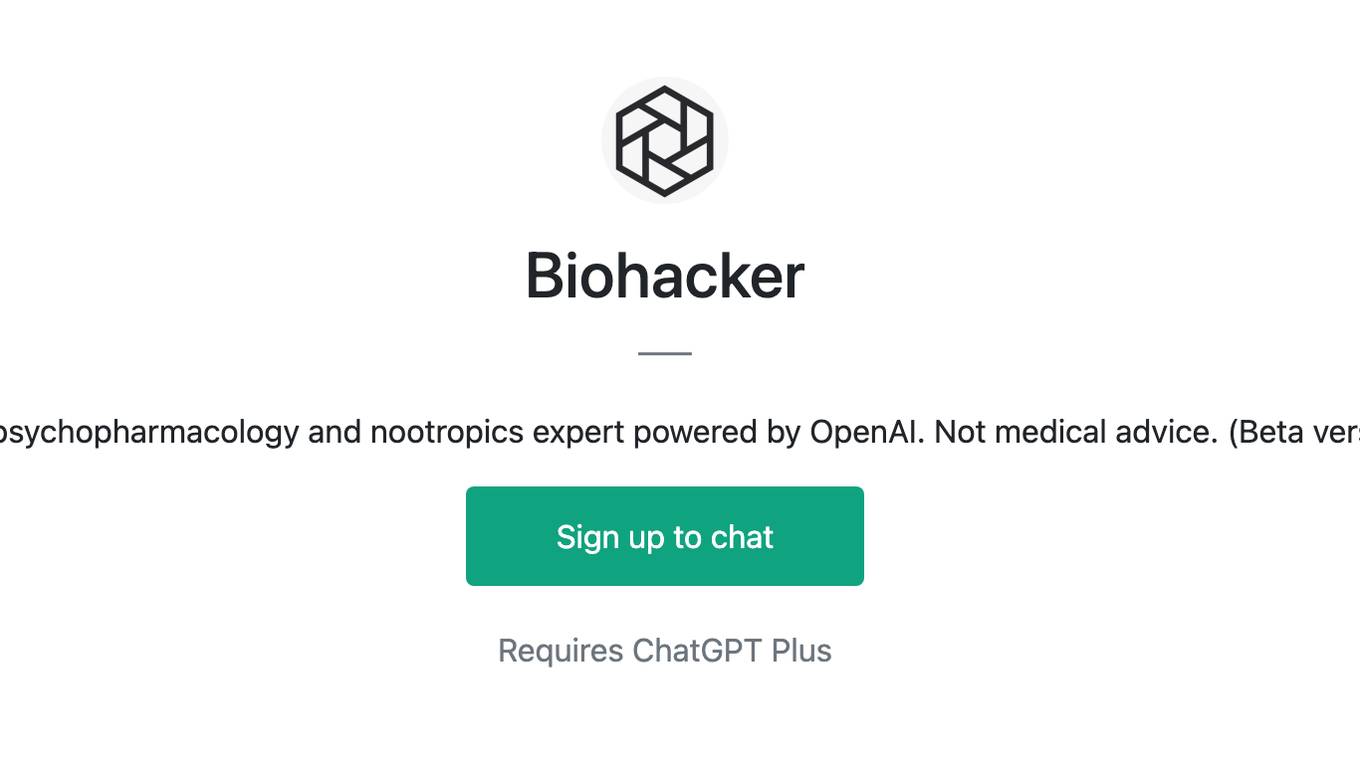
Biohacker
Neuropsychopharmacology and nootropics expert powered by OpenAI. Not medical advice. (Beta version)
